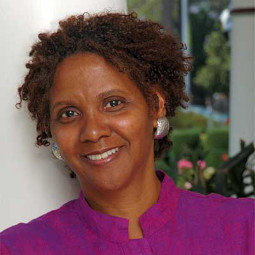
Denise Fairchild
Denise Fairchild is the founder of Emerald Cities Collaborative, a national nonprofit network of organizations that advocates for green cities and environmental justice.
Thank you for joining us in April 2022 for our first AJI + Columbia event: Climate Ready Columbia. This event gathered folks from around the city and the region to discuss local and municipal policy options related to climate change.
Climate Ready Columbia was a free, two-day conference about the Columbia metropolitan area’s preparations for climate change. While the conversation on climate change often focuses on national and state efforts, the conference spotlighted local and municipal policy options.
Conference sessions were held at the USC School of Law.

Denise Fairchild is the founder of Emerald Cities Collaborative, a national nonprofit network of organizations that advocates for green cities and environmental justice.
The conference included 14 expert panels on a variety of topics. Recordings for the expert panels can be found below.
On April 3, conference participants toured local gardens featuring sustainable practices.
This webinar series on Facebook discussed climate responses with experts
In conjunction with Climate Ready Columbia, the McKissick Museum hosted two photography exhibits.
INHERITANCE: Sustainable Farms of the South
Photography by Brett Schenning
January 10 — July 15, 2022
Schenning’s photographs aim to capture the hope that drives southern sustainable farmers.
Hope that they will succeed in raising foods to nourish people in their communities.
Hope they their hard work will both bear fruit and enable them to pay their bills.
Hope that the ways they farm will ensure that the land will continue to support future
generations. These photographs present select southern farms that differ in many ways
but are united in their stewards’ belief that sustainable agriculture can make the
world a better place.
WILD BEES
Photography by Paula Sharp & Ross Eatman
January 10 — July 15, 2022
When most people think of bees, they picture the hives of honeybees. Honeybees, however,
are a single non-native species among thousands of native bees that inhabit North
America. Our native bees pollinate our vegetable and fruit crops, backyard gardens,
fields, and woodland trees. The exhibit Wild Bees showcases a collection of stunning
macro photographs by Paula Sharp and Ross Eatman depicting the world of America’s
native bees.
In 2017, Columbia became the first city in South Carolina to commit to the Ready for 100 Pledge to Transition to 100 percent clean and renewable energy by 2036, but there remains no clear roadmap for meeting this commitment.
“This conference is an important opportunity to take stock of our progress, and to rededicate ourselves to responding to climate change,” says Bob Petrulis, chair of the city’s Climate Protection Action Committee.
It is also an opportunity to consider what cities can be doing to prepare and adapt for increasing temperatures, and extreme weather. “Cities and counties are on the front lines of climate change, which we saw with the historic flooding of 2015,” says Matt Kisner, the conference director and a professor at the University of South Carolina. “But this matters to business too. Cities and counties are potential winners and losers as we transition to a green economy.”
Cities and counties are on the front lines of climate change.
— Matt Kisner, conference director
Climate Ready Columbia is funded by the Ann Johnson Institute for Science, Technology and Society at the University of South Carolina.
Conference partners include the City of Columbia’s Climate Protection Action Committee, Richland County, the Gills Creek Watershed Association, Let’s Meat Less, Conservation Voters South Carolina, the South Carolina State Energy Office, Sustainable Midlands, Columbia Green, the Climate Realities Project, Net Impact at USC, the University of South Carolina Office of Sustainability, the Sierra Club, and more.